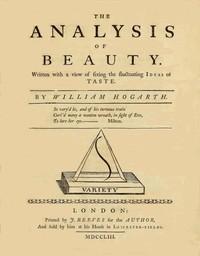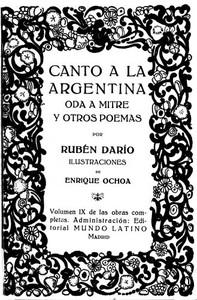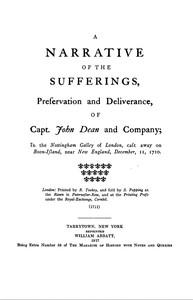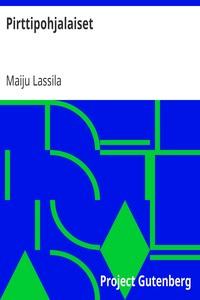Read this ebook for free! No credit card needed, absolutely nothing to pay.
Words: 44850 in 14 pages
This is an ebook sharing website. You can read the uploaded ebooks for free here. No credit cards needed, nothing to pay. If you want to own a digital copy of the ebook, or want to read offline with your favorite ebook-reader, then you can choose to buy and download the ebook.


: The Analysis of Beauty Written with a view of fixing the fluctuating ideas of taste by Hogarth William - Aesthetics Early works to 1800
PREFACE. iii
ERRATA.
INTRODUCTION.
I now offer to the public a short essay, accompanied with two explanatory prints, in which I shall endeavour to shew what the principles are in nature, by which we are directed to call the forms of some bodies beautiful, others ugly; some graceful, and others the reverse; by considering more minutely than has hitherto been done, the nature of those lines, and their different combinations, which serve to raise in the mind the ideas of all the variety of forms imaginable. At first, perhaps, the whole design, as well as the prints, may seem rather intended to trifle and confound, than to entertain and inform: but I am persuaded that when the examples in nature, referr'd to in this essay, are duly consider'd and examined upon the principles laid down in it, it will be thought worthy of a careful and attentive perusal: and the prints themselves too will, I make no doubt, be examined as attentively, when it is found, that almost every figure in them is referr'd to singly in the essay, in order to assist the reader's imagination, when the original examples in art, or nature, are not themselves before him.
It may be needless to observe, that some of the last-mention'd, are not only the dependents on, but often the only instructors and leaders of the former; but in what light they are so consider'd abroad, may be partly seen by a burlesque representation of them, taken from a print publish'd by Mr. Pond, design'd by Cavr. Ghezzi at Rome.
To those, then, whose judgments are unprejudiced, this little work is submitted with most pleasure; because it is from such that I have hitherto received the most obligations, and now have reason to expect most candour.
Therefore I would fain have such of my readers be assured, that however they may have been aw'd, and over-born by pompous terms of art, hard names, and the parade of seemingly magnificent collections of pictures and statues; they are in a much fairer way, ladies, as well as gentlemen, of gaining a perfect knowledge of the elegant and beautiful in artificial, as well as natural forms, by considering them in a systematical, but at the same time familiar way, than those who have been prepossess'd by dogmatic rules, taken from the performances of art only: nay, I will venture to say, sooner, and more rationally, than even a tolerable painter, who has imbibed the same prejudices.
The more prevailing the notion may be, that painters and connoisseurs are the only competent judges of things of this sort; the more it becomes necessary to clear up and confirm, as much as possible, what has only been asserted in the foregoing paragraph: that no one may be deterr'd, by the want of such previous knowledge, from entring into this enquiry.
Were not this a true state of the case, many a reputed capital picture, that now adorns the cabinets of the curious in all countries, would long ago have been committed to the flames: nor would it have been possible for the Venus and Cupid, represented by the figure , to have made its way into the principal apartment of a palace.
Altho' the instances already given are pretty flagrant, yet it is certainly true, that painters of every condition are stronger instances of the almost unavoidable power of prejudice, than any people whatever.
From what has been said, I hope it appears that those, who have no bias of any kind, either from their own practice, or the lessons of others, are fittest to examine into the truth of the principles laid down in the following pages. But as every one may not have had an opportunity of being sufficiently acquainted with the instances, that have been given: I will offer one of a familiar kind, which may be a hint for their observing a thousand more. How gradually does the eye grow reconciled even to a disagreeable dress, as it becomes more and more the fashion, and how soon return to its dislike of it, when it is left off, and a new one has taken possession of the mind?--so vague is taste, when it has no solid principles for its foundation!
In order to my being well understood, let every object under our consideration, be imagined to have its inward contents scoop'd out so nicely, as to have nothing of it left but a thin shell, exactly corresponding both in its inner and outer surface, to the shape of the object itself: and let us likewise suppose this thin shell to be made up of very fine threads, closely connected together, and equally perceptible, whether the eye is supposed to observe them from without, or within; and we shall find the ideas of the two surfaces of this shell will naturally coincide. The very word, shell, makes us seem to see both surfaces alike.
Free books android app tbrJar TBR JAR Read Free books online gutenberg
More posts by @FreeBooks

: Canto a la Argentina Oda a Mitre y otros poemas Obras Completas Vol. IX by Dar O Rub N Ochoa Enrique Illustrator - Nicaraguan poetry


: A narrative of the sufferings preservation and deliverance of Capt. John Dean and company in the Nottingham galley of London cast away on Boon-Island near New England December 11 1710 by Dean John Dean Jasper Editor - Nottingham Galley (Merchant ship); Bo





